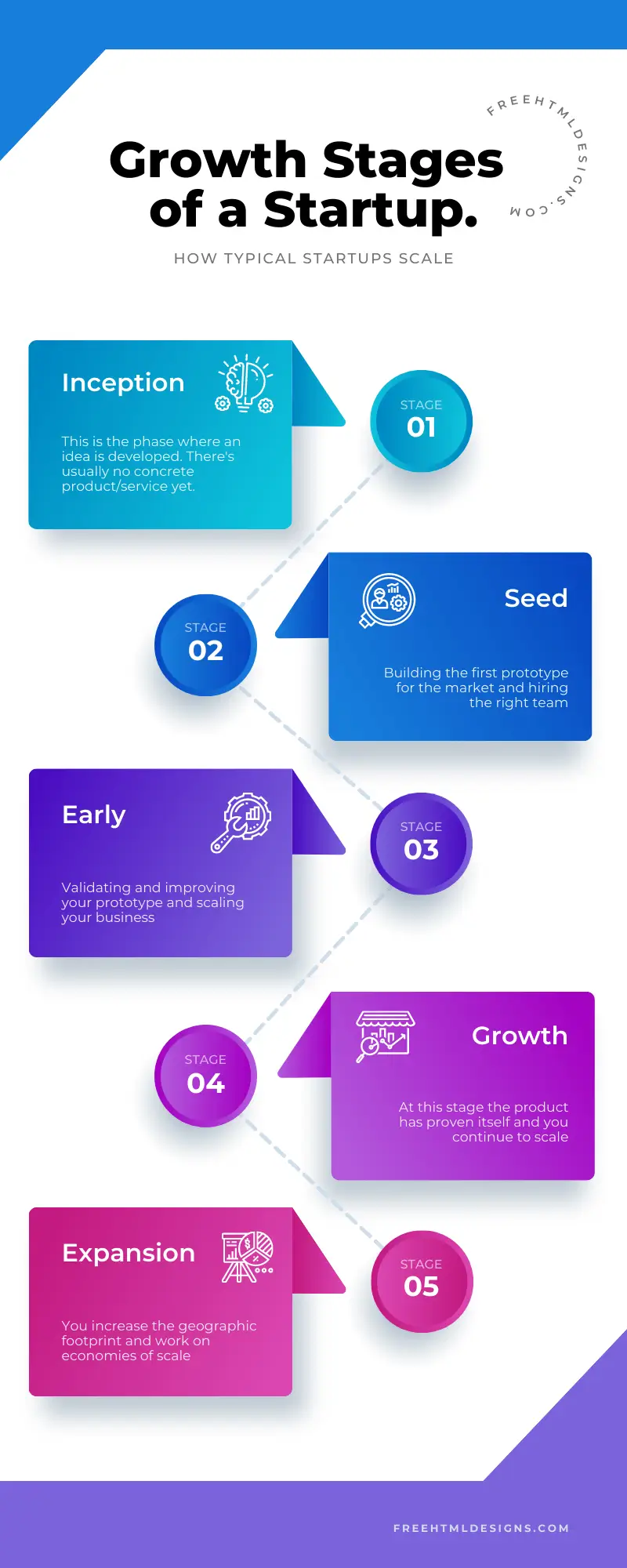Do you want to know what are the most costly mistakes when building a startup website? If yes, then keep reading this article.
Almost 550,000 new websites are created every day. However, a good-quality website is a rarity these days. Unfortunately, the internet is filled with poor content that users only wish to avoid.
In modern times, we can’t imagine a business without a website. The website stands at the very beginning of your customer’s journey and is therefore crucial in developing meaningful and lasting relationships between the customers and the brand.
If your business is a startup, the importance of a website is even more significant, since every new lead counts. On the other hand, however, startups usually make many mistakes when it comes to web design, due to a lack of experience and a tendency to minimize costs.
So, let’s examine the most costly mistakes when building a startup website and simple tips for avoiding them.

The Website Doesn’t Look Appealing
When a person lands on a website, they look for the information they need. However, design is what makes them remember the content better and connect pleasant emotions with it.
One of the most common rules for making your website visually appealing and memorable is to stick to a maximum of three colors. Balance is crucial here, since a design that’s too plain easily becomes dull, and one that’s too colorful can be perceived as aggressive.
In addition, once you pick your colors, don’t change them often. Change can interrupt your brand image.
Another important thing to remember is that being mobile-friendly is an absolute must. We use our phones more often than ever before, and nobody will take you seriously if your website looks all messed up when accessed from the phone.
Finally, it is a general rule that the navigation bar should be either on the top or on the left-hand side.

The Website Isn’t Properly Planned
Internet users are impatient beings. Once you charm them with beautiful colors and images, you need to impress them with concise and useful information. Otherwise, they will stray away.
A healthy content strategy will determine the very nature of your message to the visitors and potential customers. In order to make a good first impression, you need to be clear on what you want to say, why, and to whom.
You will effectively deliver your message only if you know your potential customers: their demographics, pain points, and motivation.
In addition, planning is important because of your budget. Some of the most common mistakes startups make are they dream too big at the beginning or create irrelevant content. Unplanned content creation will lead to inconsistencies, missing pages, and broken links, which will result in an unresponsive website and low SEO ranking.
If you want people to like your content and come back for more, you need to produce content consistently. Most marketers agree that AI-based content writing tools are your best friends if you are a startup launching a website. These tools will keep your content creation costs at a minimum, and at the same time, they will generate SEO-optimized content. It’s a win-win!
Site Navigation Isn’t Intuitive
Making a website intuitive and truly user-friendly is a way to get people to stay on your website longer.
You want your website’s visual hierarchy to align with human psychology. UX designer know how to organize your landing pages so that they grab the attention of visitors and enable easy browsing. As a result, your website will be easy to navigate and look decluttered.
Your Content Doesn’t Comply with External Regulation
Online privacy is becoming increasingly important, as users are protesting against the unethical usage of sensitive data. Therefore, visitors find extra value in companies whose websites care about data privacy.
Therefore, you want to inform visitors why and how you collect their data, and for how long you keep it.
Taking care of data privacy not only boosts your reputation but also ensures your business stays out of trouble with the law. The latest regulations for online data privacy are quite strict, and large fines apply in case of breaches.
For example, the European Union has established the General Data Protection Regulation (GDPR), a rulebook on how websites should collect and process user data. According to this act, fines can be as high as 10 million euros or even 2% of annual turnover.
Avoiding and managing potential breaches is essential. Therefore, you want your marketing team to know the local regulations and ensure data and cybersecurity compliance to boost credibility.
Not Enough Information
This is probably one of the most common mistakes startups make. They are so far into their product and the market, that they forget what it is like to know nothing about it. In other words, your home page needs to explain the core of your business so that anyone understands it. Not only professionals or enthusiasts.
Therefore, creating brief, concise, and understandable content is vital to the art of website building and essential for its performance.

Finding The Right Balance Between Improvisation and Generally Accepted Practices
Most modern marketing professionals rely on big data and marketing literature to plan their marketing strategies. Of course, this is a good thing, and following good practices and tested approaches is desirable.
However, don’t let rules stand in the way of improvisation and creativity. Your marketing team can always get inspiration from data-driven tools or the information it delivers to help them focus on new markets and explore innovative web design solutions. Original and data-driven web design solutions will boost your traffic and SEO ranking.
Speaking of SEO…
Not all businesses are keenly aware of this, but Google is a universal business partner in the modern world.
Why? Because your sales directly depend on your website, and your website’s performance directly depends on how Google will display it. This is especially true for e-commerce business owners and artists, for example, because they sell through the website and target specific niche audiences.
Therefore, make sure to pick keywords that have high relevance and low competition. Then, use those keywords in headings, titles, image tags, and meta descriptions.
Your Payment Gateway Is Shady
Finally, saving on payment gateways and working with less popular ones might drive buyers away. As previously mentioned, people are trying to protect their sensitive data; therefore: they don’t want to give their credit card details to you via an untrustworthy platform.
For this reason, try to use only reputable, well-known services such as Payoneer, PayPal, or Skrill.
A Final Word: Mistakes When Building A Startup Website
If you can avoid making these fundamental website mistakes, your startup will get off the ground faster and find itself attracting more visitors and followers. Importantly, you’ll save more money and time by avoiding these errors than you will spend doing things right in the first place. Then, you’ll bere free to put your resources and attention on the many other pressing issues that come with any startup.
 free html design Free html design templates
free html design Free html design templates






